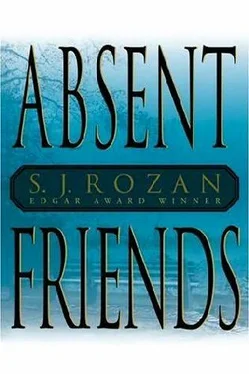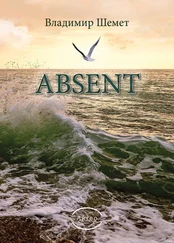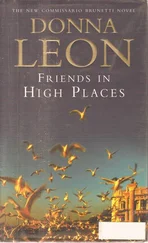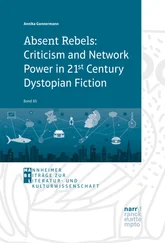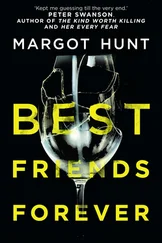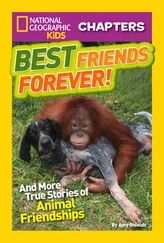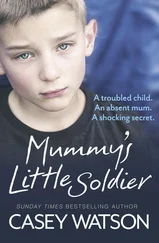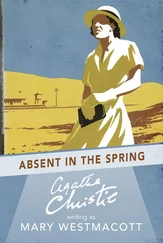Laura barely noticed any of these people, or the sun, or the softness of the air. She was thinking about other afternoons, and nights, mornings, too, about the dry rough feel of Harry's hands and the taste of gin when he kissed her.
Leo had been too smart to try to send her home, to try to give Laura Stone some time off. But a dazed, hollow-eyed reporter isn't much use around a newsroom, in fact gets in the way. Too many others feeling like they have to say something, too much swampy thickness in the atmosphere. What Leo had done instead was rearrange the week's Metro sections, pulling someone's piece on the teachers' union from Friday to tomorrow, pushing Laura's SoHo merchant story to later in the week, maybe even Monday or Tuesday. Because the teachers' union piece was more timely, he'd growled as she stood in his doorway, and she should goddamn know better than to even ask.
So when Laura left soon afterward, she could have been assumed to be working: seeking out more sources, interviewing Prince Street businessmen she'd skipped in her rush to deadline, taking the extra days to dig deeper. No one really did assume this, but Laura's dry-eyed fierceness and the rigid lock of her shoulders set up enough of a barricade that the sympathetic glances and kind comments were mercifully few. As Laura jabbed and jabbed again at the elevator button-slowest frigging elevator in New York, Harry always said, especially when thirsty reporters needed their beer-Georgie appeared and stood sadly, but Laura, her focus inward, living again an afternoon not so very long ago, did not turn his way.
Harry Randall's explosive piece on the real James McCaffery-the third story, following by two weeks the one Leo had assigned as a soft feature on the Fallen Hero, a heartstring-tugger (and assigning it to Harry, the newsroom knew, was further proof of how far Harry himself had fallen)-had been brilliant, and Laura had told him so.
But Harry had not been so easily bought.
It was the trailing edge of an afternoon in late October. Harry had discreetly absented himself as she sifted through his copy. She ran through it once, then again, was on it for a third time when he brought his worry and his gin back with him into the bedroom.
“Terrific,” Laura told him, scooting over to make room. “Jesus, Harry, this'll light the fuse. It's fabulous.”
Neither of them was on that day, and they had not left Harry's apartment. While Harry hunched over his desk, the clicking of keys stopping only when he was rifling through papers, flipping notebooks open and shut, or shifting folders from pile to pile, Laura kept herself mostly to the bedroom. Once or twice, pulling her robe around her, she slipped into the kitchen to make coffee. Each time she left him his without a word and carried hers back to bed, where she was working her way through a stack of yesterday's newspapers.
This was Laura's habit from journalism school days, to scan rags from all over, every week. Harry had groused when she'd first brought her habit to bed on a Sunday afternoon: “Hey, Stone, you're smearing ink all over my sheets.” Laura reminded him he was supposed to be an ink-stained wretch and went on reading. She needed to know: Someone might have thought of an angle she hadn't. Someone's prose might be making readers sit up and take notice. And some young reporter-younger even than she-someone still in the sticks, might be breaking out, a star rising. She needed to know.
Though, if truth be told, the bedroom was a little chilly, the view from its windows dull, a neighbor's brick wall. Laura might have been happier out where Harry was, in the living room, wrapped in a blanket in Harry's reading chair, where she could glance up from an op-ed piece to see the river roll by and to watch Harry work. She would have preferred some conversation, maybe even a kiss and a cuddle, between the Sacramento Bee and the Chicago Sun-Times.
But the muttering Harry Randall in the other room, tossing papers, dropping folders, banging the keys nonstop as the sun slid in orange squares across the wall-this was the Harry Randall of legend. The man the newsroom, with Laura the sole exception, said was gone for good, drowned in gin and futility.
He was not gone; he was right here; and it was thrilling. Once or twice, as the afternoon lengthened, Laura slipped out of bed and stood silent in the doorway. She watched as, with a hunter's taut smile, Harry searched his notes for this quote, that date, letting out a sharp “Ha!” when he found what he'd wanted; and Laura's heart sped, and she had to wipe her eyes because they'd suddenly gone misty.
So Laura made Harry coffee, and sipped her own, and stayed out of his way. And if she did not precisely smear ink on her own shoulder patting herself on the back, still she was certain that if an exiled afternoon was the price of getting that Harry Randall back, it was a hell of a terrific deal.
And when he'd stopped, hit the keys for the printer, brought her the pages, and wandered off to find his gin, she shoved to the floor all the newspapers floating around her, read his copy through, and told him it was brilliant, because it was.
“Ummm.” Standing the gin bottle on the side table, holding on to the glass, he flapped the sheet up and slipped into bed. With his empty hand he tugged the covers up again.
Laura rolled onto her hip to look at him. “You're still not sure?”
“That it's great? No, that brilliant young reporter, the up-and-coming Laura Stone, says it's great. It must be true.”
Harry nestled closer to her. She giggled. “I'm not the only thing around here that's up-and-coming, am I?”
“Behave yourself, Stone. I'm an old man.”
“I know.” Laura traced a slow finger on the rim of Harry's ear, continued down the side of his neck. “And the one and only thing that interests you at this point-in the twilight of your life-is the pitiful and corrupted state of American journalism.”
“You're right.”
“You're lying.”
He had been, and it was some time before they returned to story, coffee, and gin.
By then the sun had gone, striping the sky across the river with the colors of fire. Harry picked up his drink, Laura the pages he'd given her. It was too dark to read, but she did not reach for the light. She offered the pages to Harry, almost as though for the first time, almost as though they weren't his. “This is great, Harry.”
He shrugged: yes, okay, maybe.
She said, “But you don't think it should run.”
Harry, looking at the pages in Laura's hand but not touching them, said, “What's the point?”
“That's not really what you mean.” He didn't answer, just sipped at his gin, so she went on. “You mean, ‘What good will it do New York's suffering citizens?' You mean, ‘Does a shell-shocked city really need more pain?' You mean, ‘Does a grieving country, trying to heal, to reach closure, to find some answers in these troubled times-'” That was all there was of that; Harry was stuffing a pillow over her face.
“Finished?”
The pillow nodded. Harry removed it, and Laura charged on. “You mean, ‘It's time to get back to normal'-wait, normalcy- ‘and move on. To take back our lives or the terrorists win! In this city so damaged by Recent Events-'”
“I thought you were finished,” Harry complained, settling his pillow weapon behind his head.
“You mean”-the anchorman tone dropped from Laura's voice, she was Laura again-“for everyone's good, some truths are better off buried. Come on, Harry. You're not serious.”
“I'm beyond serious, Stone. I'm maudlin.”
“This is a great piece. This is tremendous. This is dynamite, Harry.”
“There were firemen from forty-six states at his funeral.”
“So?”
Читать дальше
